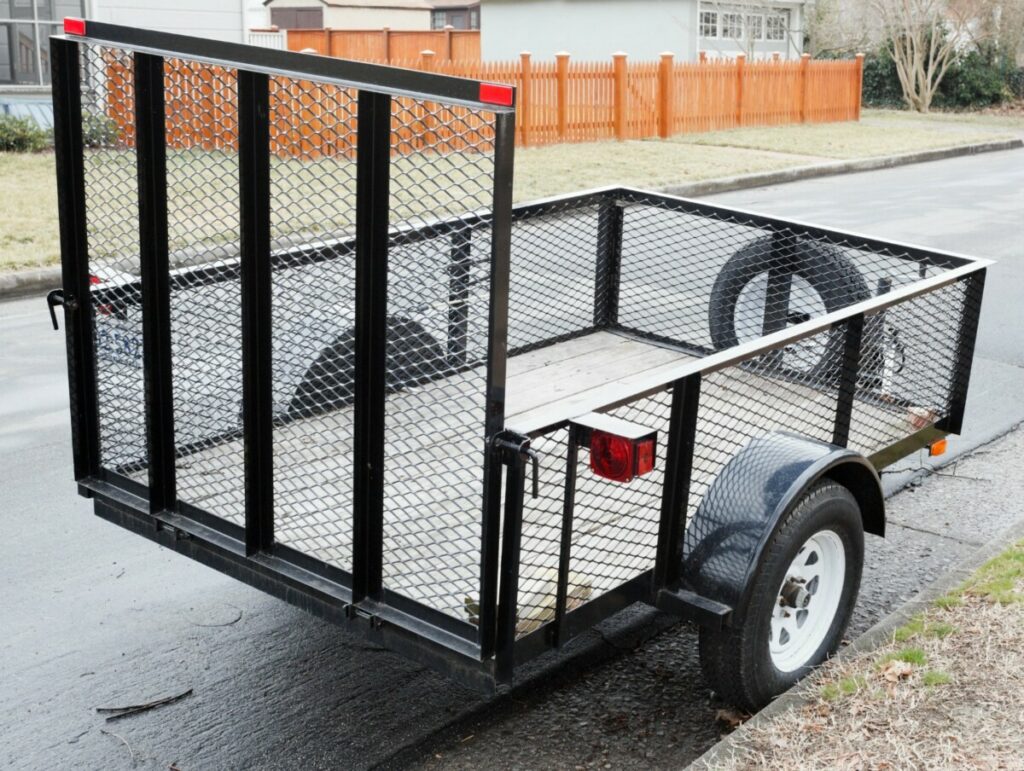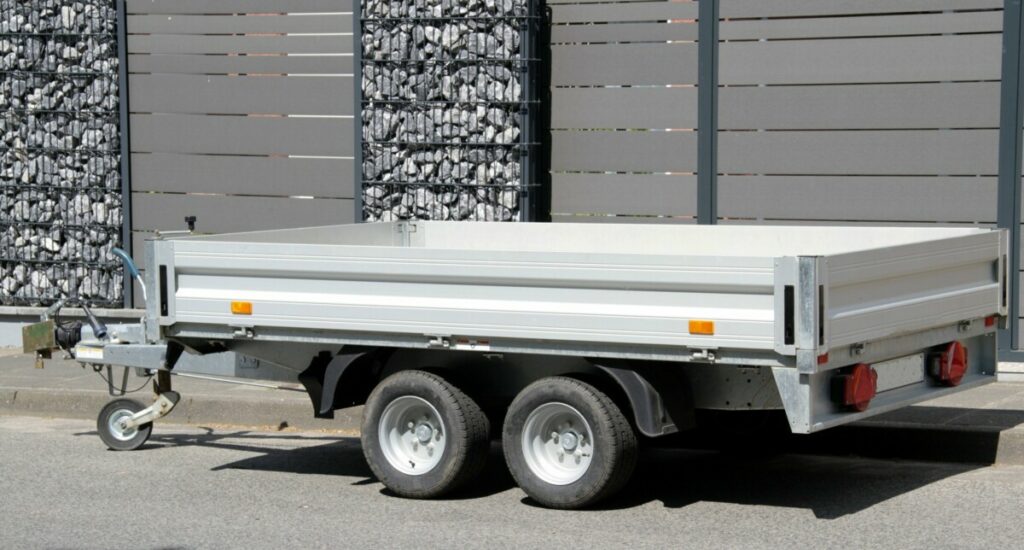Cars and other vehicles are so incredibly wonderful for many different reasons. Cars can have many fun and enticing additions and abilities, such as trailers. Trailers also have many important differences that are important to note, but what is the main difference between a single and tandem axle trailer?
Single-axle trailers are trailers that only have one axle, while tandem axle trailers have two or more axles. Each has a different number of wheels, weight capacities, and vehicle compatibility. Single axle trailers can be used by any vehicle, while tandems can only be used by trucks.
This general overview answers some of the big questions posed by people looking to haul a load. However, there are many more aspects of both trailers that should be examined thoroughly, such as weight limits, vehicle compatibility, sizes, and others.
Single Axle Trailers

Overview
Single axle trailers are the cheaper and easier option for most people wanting to carry a load. They tend to be smaller in size due to the fact that the single set of wheels can only handle smaller weighted loads. They also are cheaper, can be used by more vehicle types and models, and can be maneuvered easier than other trailer types.
Cost to Get and Maintain
Single axle trailers tend to be the cheaper option due to having fewer parts and being more gas efficient than tandem trailers. The average cost for a single-axle trailer is around $400-$4,000. There are only 2 tires to check on and replace occasionally. They are also made more simply. Often, the axle is connected to the trailer by a spring or is directly connected to the trailer, so there are fewer parts to check in on and upgrade. Overall, if a person is looking for something to haul items but doesn’t want to purchase an extremely expensive trailer, a single-axle trailer is the way to go.
Vehicle Compatibility
Vehicle compatibility is much more open-ended with a single-axle trailer than with a tandem axle trailer. Single-axel trailers have a smaller average weight capacity than tandem axle trailers. This means smaller vehicles like sedans with hitches can tow a single axle much easier than a tandem. It is also much easier for a person to maneuver in smaller places and back up with a single axle than a tandem axle trailer.
Size Options
Single axle trailers have a variety of sizes and weights that they can handle. Often, this can be discovered by looking at the trailer label or plate. However, if the plate doesn’t specify the weight capacity or it is an older model, there is a nifty way to tell what the weight capacity is. If a person has an axle that has an inch and a half diameter, it can hold up to 1,000 pounds. This number slowly goes up until an axle is about 5 inches wide. When an axle is 5 inches wide, the trailer will have a weight capacity of 10,000 pounds.
Why Pick a Single Axle Trailer Over a Tandem?
There are many reasons someone might value a single-axle trailer over a tandem. Some of these include the cheaper price upfront, the ability to maneuver safely, the fact it can be hauled by more types of vehicles, and the smaller cost to repair and maintain. These types of trailers also are more efficient with gas due to the lighter weight and smaller size. For the average person wanting to tow or transfer smaller loads of materials, a single axle trailer might be the better option.
Tandem Axle Trailers

Overview
A tandem axle trailer is a trailer that has 2 or more axles and sets of wheels. This kind of trailer is able to lift heavier loads, is larger, is sturdier, and is worth more in the long run. They are also known for being a more expensive purchase upfront and can be harder for someone to learn how to tow safely.
Cost to Get and Maintain
The tandem axle trailers tend to be much larger in size, have more parts, and are built stronger than single axle trailers. This all leads to a greater cost upfront and to maintenance. The average cost of a tandem axle trailer is $5,000-$8,000. Even cheaper tandem axle trailers cost more than their expensive single-axle counterparts.
When it comes to maintenance costs, there are more parts to be aware of. For example, a single axle doesn’t have 2 axles or 4 wheels. This means that a person needs to check in and see if both axles are functioning well and have the tired replaced frequently. Tandem axle trailers also have brakes on the tires that need to be maintained as well. Tandem axle trailers also are known to decrease a car’s gas mileage due to the heavy weight and the difficulty driving and parking correctly with the larger load.
Although all of these costs are not beneficial, there is something to be said for selling the tandem axle trailers after a person is done towing with them. These vehicle additions have a greater resale value, and a person will be able to sell them much easier and at a much higher price than they could sell a single-axle trailer.
Vehicle Compatibility
These trailers can only really be used by vehicles meant to tow, like trucks and other larger vehicles.
Size Options
Tandem axle trailers have a much larger average weight capacity than single axle trailers. Even small models that are only 6 feet by 12 feet can hold an average of 1,175 pounds. This is almost 200 pounds more than the average single-axle trailer! The average size of a tandem trailer is much larger, so the average weight capacity also increases. The average weight capacity is 4,175 pounds to 5,225 pounds. For people who want or need to tow heavier loads, this type of trailer would better suit their needs.
Why Pick a Tandem Axle Trailer Over a Single?
The main reasons someone would pick a tandem axle trailer include having a larger weight capacity, a higher resale value, and the fact they are made to last longer and be sturdier in a variety of situations. These trailers are a good choice for people who tow frequently, have larger loads, and are people who are willing to make a pricier investment.
Trailers are an incredible invention that allows people to be more mobile than in times past. With all of these different trailer factors and traits in mind, it becomes much easier for a person to decide which trailer will best suit their needs and wants.

